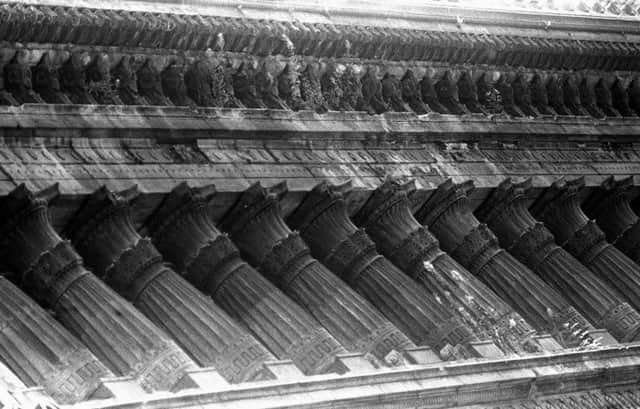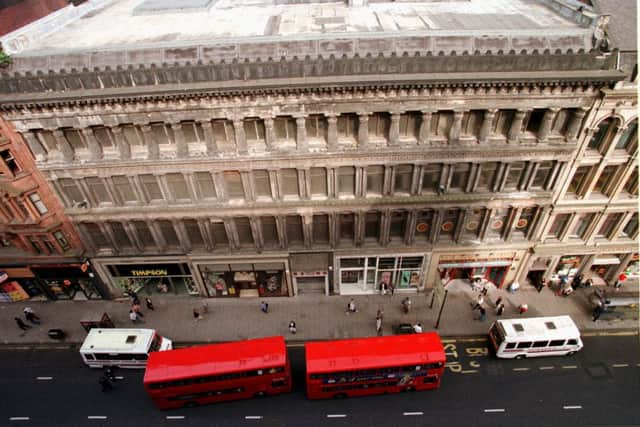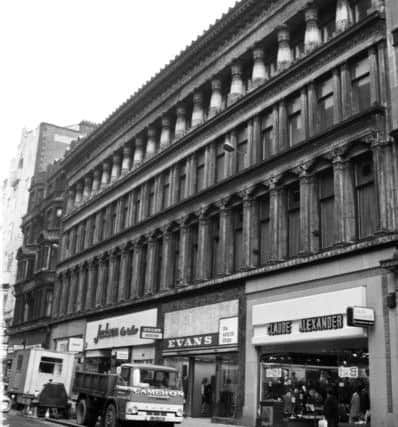What next for Glasgow’s landmark Egyptian Halls?


Experts believe the condition of the Egyptian Halls in Union Street, designed by Alexander ‘Greek’ Thomson, is worsening with each passing winter.
The Alexander Thomson Society, which campaigns for the conservation of the architect’s work, said there had been a “worrying lack of updates” on long-proposed plans to redevelop the privately-owned building.
Advertisement
Hide AdAdvertisement
Hide Ad“The condition of the building is very poor and deteriorating largely through water penetration,” said Mark Baines, chairman of the Thomson Society.


“It is a very worrying situation as it is Thomson’s finest commercial building but there seems to be this impasse between the building’s owners and the local authorities.
“Every month and especially every winter that passes we can’t be too optimistic regarding the building’s future.”
A 2010 proposal to develop the upper floors of the Halls into a four-star hotel have so far failed to get off the ground, despite winning planning approval, but The Scotsman understands the building’s owners are continuing to work to progress a plan with relevant stakeholders.
The Egyptian Halls Building Preservation Trust had a £5 million Heritage Lottery funding application turned down for a second time in June.


The Egyptian Halls was completed in 1872 for iron manufacturer James Robertson. Its frontage of polished ashlar hides a cast iron frame. Despite its name, the building’s design shows Greek influence rather an Egyptian.
Architect Thomson, who died in 1875, was nicknamed ‘Greek’ for his regular incorporation of ancient Grecian styles into his works.
Another of his major buildings, the Caledonia Road Church in the Gorbals, also stands derelict.
Advertisement
Hide AdAdvertisement
Hide Ad“Thomson always seems to be second class compared to Charles Rennie Mackintosh in Glasgow,” Baines continued.
Henry-Russell Hitchcock, a leading American architectural historian, wrote in 1966 that Thomson was “an even greater and happily more productive architect” than Mackintosh.
A spokesman for Glasgow City Council said: “Officers from the council have - in a number of ways - assisted in the proposed redevelopment of the Egyptian Halls for a considerable time. Some years ago, the council offered around £1 million in funding to help the redevelopment, with additional funding from other sources, if conditions were met by March 31, 2011. The conditions for not met, so the funding could not be released.
“We are very aware of both the architectural importance of this Grade A listed building and its potential, and of the various proposals to bring the Egyptian Halls back to life over the years. Hopefully a solution will be found at some point to fully redevelop the Egyptian Halls.
A spokesman for Historic Environment Scotland said: “We have been in regular contact with Glasgow City Council and the building owners regarding the future of this important building. However, any project to take forward a scheme of redevelopment or refurbishment is incumbent on the owner. Our officials remain available to assist where possible and to advise the owners on the available options for grant funding.”